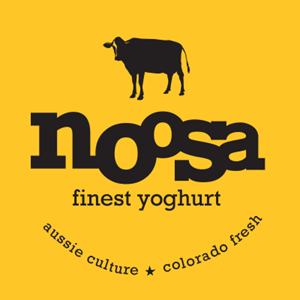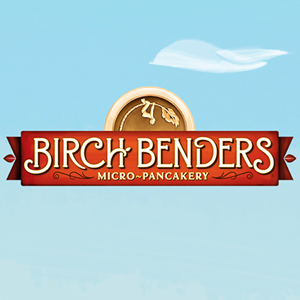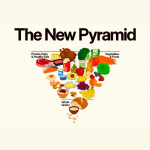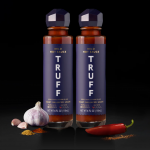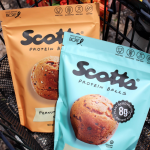Rao’s, Noosa and Birch Benders Owner Files for IPO
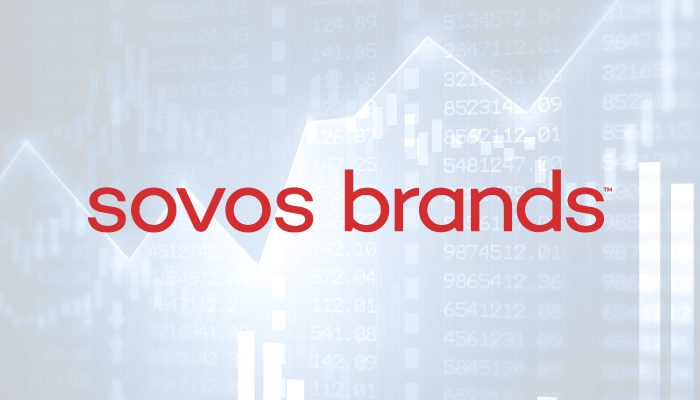
Rao’s, Noosa and Birch Benders Owner Files for IPO
Last Friday, food company Sovos Brands filed for an IPO, listing the size of the offering as $100 million, subject to adjustment. The Colorado-based company owns and operates the Rao’s, Birch Benders, Noosa and Michael Angelo brands. Sovos plans to list on the NASDAQ, trading under the symbol SOVO.
The company declined to comment about the IPO, citing SEC regulations.
What Is Sovos?
Sovos is the brainchild of CEO and President Todd Lachman, a long-time CPG executive, who in 2017 partnered with Bill Johnson, now Sovos’ chairman, and private equity firm Advent to begin building the company. The goal, Lachman said in Friday’s filing with the SEC, was to “acquire, integrate and accelerate premium ‘one-of-a-kind’ brands in the early stages of growth,” that could benefit from a seasoned executive team and shared infrastructure. In particular, the company has focused on companies producing better-for-you products that command a premium price point.
In 2017 Sovos acquired frozen entree brand Michael Angelos, which has been rebranded, and Italian food brand Rao’s, which has moved into categories like soups and frozen entrees while going deeper into dried pasta and sauces. The company followed that by acquiring yogurt brand Noosa in 2018 and baking mix brand Birch Benders in 2020.
Sovos’ strategy for its brands has been to try to use shared teams, such as finance or HR, between brands where possible, and then build sales rapidly by investing in marketing, distribution and launching into new categories.
“We believe our focus on ‘one-of-a-kind’ brands, products that people love, and passion for our people makes Sovos Brands a ‘one-of-a-kind’ company and enables us to deliver on our objective of creating a growing and sustainable food enterprise yielding financial growth ahead of industry peers,” the filing states. “We intend to leverage our proven value creation playbook to accelerate growth and realize synergies under our ownership.”
How Has the Company Performed?
According to the SEC filing, Sovos is the “fastest growing food company of scale in the United States.” From 2018 to 2020, the company’s sales increased at a compound annual growth rate (CAGR) of 66% — which includes the addition of Birch Benders and Noosa), and net sales of the four brands in the portfolio as of today increased at a CAGR of 28%
For the past 12 months ending June 26, 2021, Sovos reported its brands generated $669 million in organic net sales, regardless of Sovos ownership during that time. Rao’s accounted for the largest portion of those sales at 55%, with Noosa at 24%, Michael Angelos at 12% and Birch Benders at 9%.
In the filing, Sovos heralded Rao’s market performance since its acquisition, which saw the brand move from holding the seventh slot in the pasta and pizza sauce category to the number three position. That’s despite the brand only having 9.6% household penetration for the 52 weeks ending June 13, 2021 and less than half the total points of distribution of its top competitors, the filing noted.
Noosa, Sovos’s second largest brand, was acquired at a time when “the business was struggling in the face of broader category headwinds,” the filing notes. Sovos spent two years “investing in strategic actions” that have resulted in Noosa outperforming the category in terms of unit sales percentage growth and dollar sales percentage growth.
Focusing on the premium end of the spectrum has both its benefits and pitfalls for the company. Though Sovos reported that its brands have room to grow in terms of household penetration and total points of distribution, both potentially more difficult given their higher price points, the company still reported a $44 million profit and 33% gross margin for 2020, a jump from $11 million and 29% in 2019. At the same time, an economic downturn could impact the company more than other brands, the filing notes.
“In an economic downturn, consumers may purchase more generic, private label and other products that are lower in price than our products and may forgo certain purchases altogether,” it states. “Consumers may reduce the number of premium products that they purchase where there are mid-tier alternatives, given that premium products generally have higher retail prices than their mid-tier counterparts.”
Still, the company has performed well in retailers that attract a wide range of shoppers. In fiscal year 2020, Sovos’ largest customers were Costco (with 16% of gross sales) and Walmart (13%).
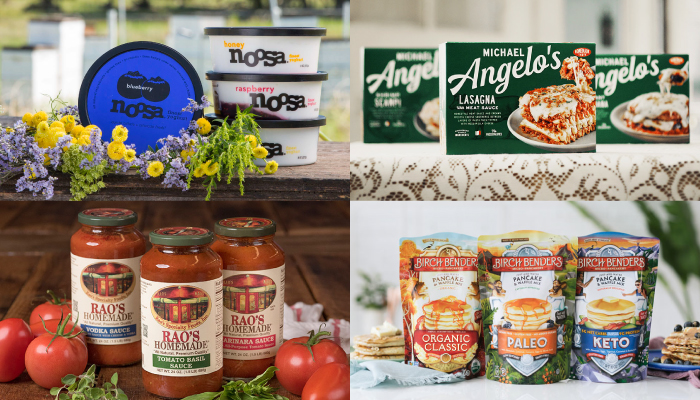
What to Watch
In the filing, Sovos noted that innovation will remain a core focus in the years to come. Forthcoming possible moves include expanding Rao’s into frozen pizza and salad dressings; introducing ready-to-eat baked goods, refrigerated baking and spoonable yogurt under the Birch Benders label and launching Noosa frozen novelties and ice cream.
Though many brands have increased their online presence as more consumers look to have their groceries delivered, Sovos noted that delivery was challenging for the company as many of its products don’t lend themselves to being easily shipped due to their temperature state, weight or fragility. Many of these new products may struggle with the same issues.
Questions also remain about consumer demand, particularly across categories. For example, sauces (which was Rao’s core product line at the time of acquisition) still accounted for 49% of Sovos’ sales in the last year. Rao’s top performing product — and the top selling stock-keeping unit in the pasta and pizza sauce category — is Rao’s flagship original marinara.
While the company reported in the filing that Rao’s expansion into the soup category was a success — it is now the fifth largest ready-to-serve soup brand by dollar sales — the space has largely been challenged in recent years and it is yet to be seen how incremental that launch will be over time.
Sovos’ portfolio of products and brands spans much of the store. While there could be some overlap between retailer buyers and category managers, it’s unclear how much that a shared sales team model will ultimately benefit the company. The same issue could also hold true for Sovos’ manufacturing and operations teams, which currently work with a wide range of manufacturers and suppliers.
Meanwhile, new competitors have emerged — particularly for Rao’s. Earlier this year former Rao’s CEO Eric Skae launched a new Italian food brand based on yet another famed restaurant chain, Carbone. Other new entrants such as Fody Foods and Primal Kitchen have also both launched premium sauce options that meet special dietary needs around gut health or the keto diet.
Growth will also come via more acquisitions, Sovos wrote, with the potential for its current team to support more brands without having to drastically increase headcount. Continuing to build brand awareness and expanding points of distribution will also be key to increasing household penetration.
“Our platform was designed to provide a foundation for future growth and to capture material synergies as we scale and add new brands,” the filing states. “Over time, we expect to continue acquiring additional [unique] brands that have our targeted attributes and significant growth potential.”
